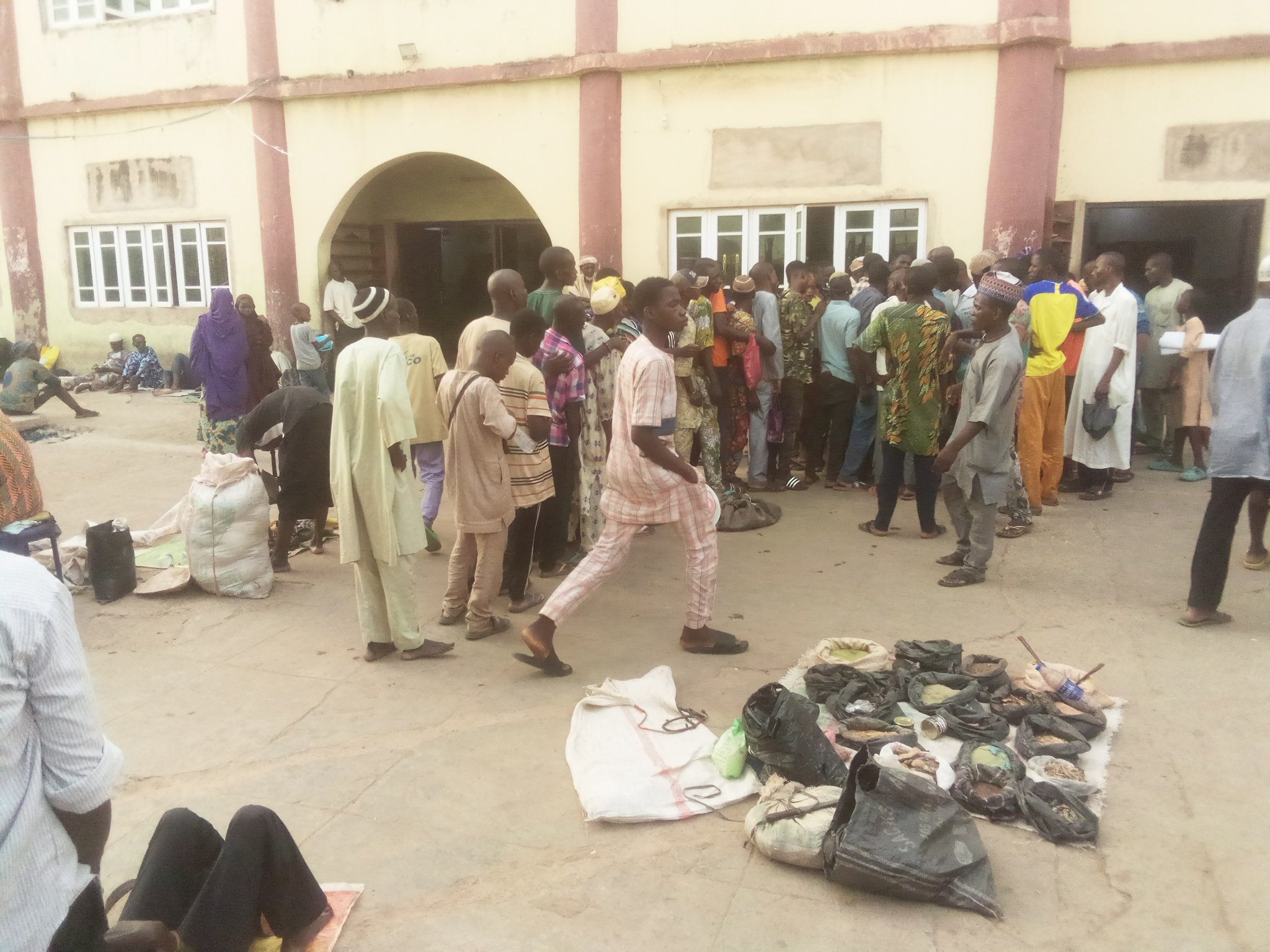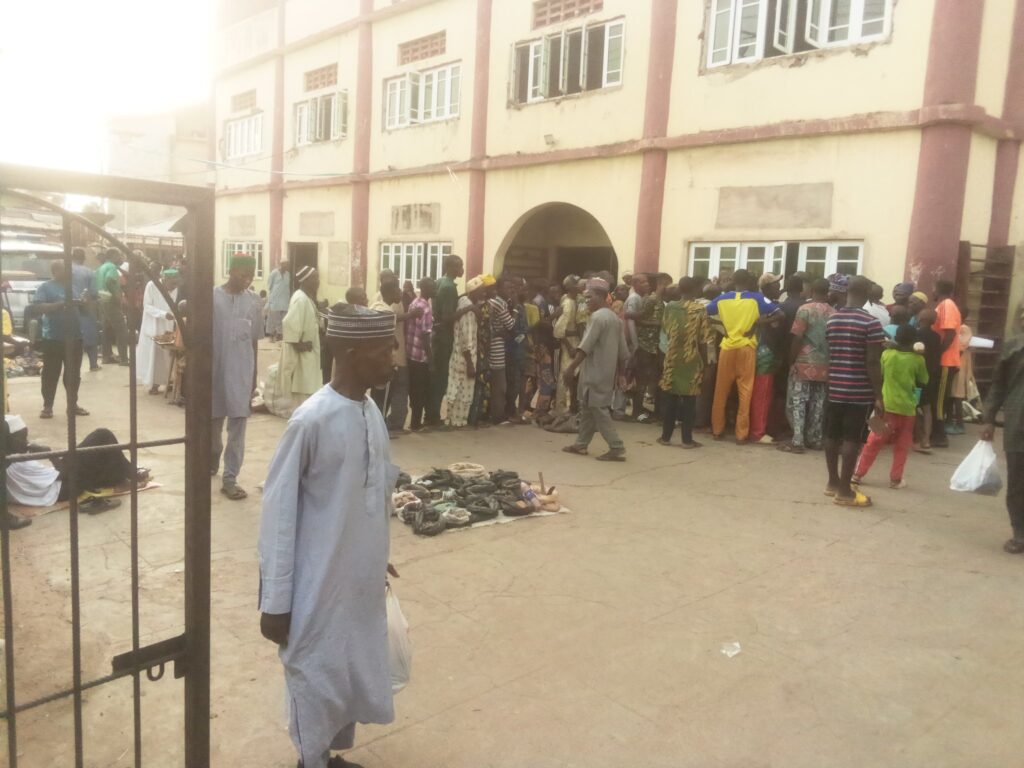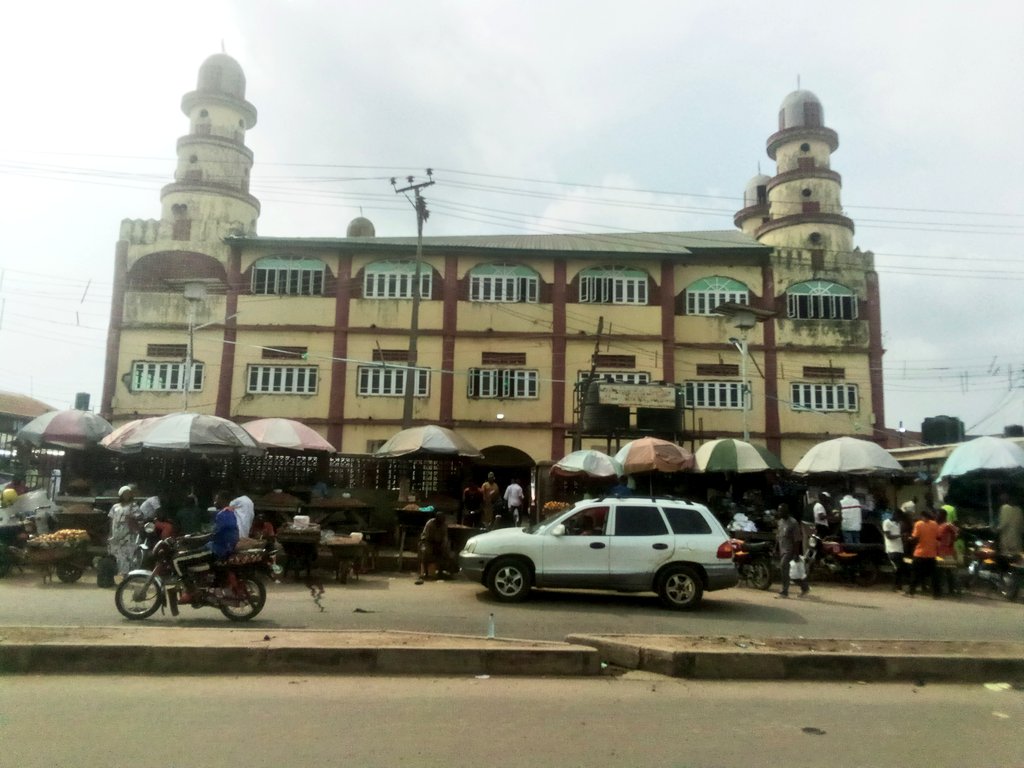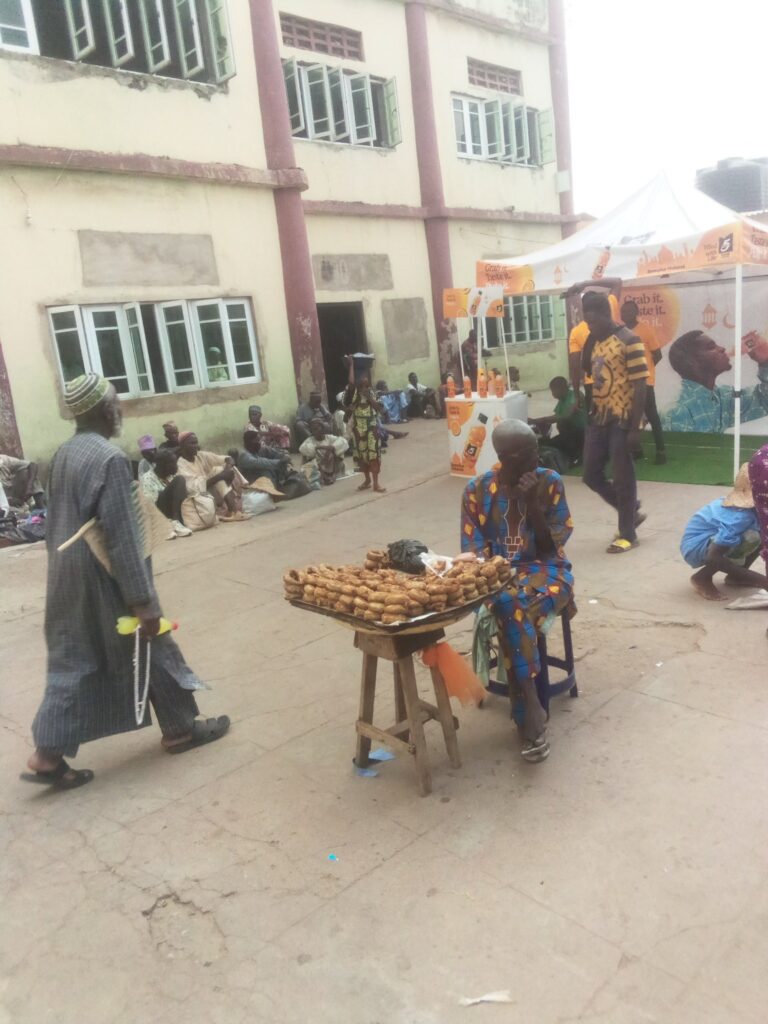

Economic hardship: Inside Ibadan Mosque, where households wrestle for five cups of rice
By Toheeb Babalola
Muslim faithfuls sighted the crescent moon on March 10, however, nobody ever predicted that average-income earners would grapple with beggars for foodstuffs in 2024 Ramadan in Ibadan, the capital city of Oyo State, South West, Nigeria.
In a recent tour embarked by the Nigerian NewsDirect within Mokola-Roundabout – one of the busiest area in Ibadan metropolis, our Correspondent discovered that at 05:00 PM (GMT+1), some good-looking elderly men and women from different corners engaged in a race (as if they were being pursued by the police) towards the Sábó community – an area dominated by the Hausas, without minding the heavy traffic or any reckless driving.
Trailing the runners to the Sábó market, all the traders (mostly Bureau De Change) concentrated on their trading, customers trooped in and out of shops and they were unconcerned about the whole scenario which seemed habitual to them in that vicinity.

Surprisingly, these people rushed into the Sábó Central Mosque, a three-storey worship centre painted with lemon green, which is five minutes walk away from the Mokola overhead-bridge. Following them into the mosque compound, our Correspondent saw beggars (mostly Hausas) scattered and some average-income earners in good dresses) joining an already established queue while some individuals were coordinating them. There was uproar immediately when two Clerics in Jalabia came out of the mosque with three full sacks whose contents weren’t seen from afar.
The clerics said, “anybody that falls out of the queue will not receive anything today,” our Correspondent patiently waited to see the contents of the sacks as they began serving the crowded queue with the help of coordinators. Meeting the first receivers, the Nigerian NewsDirect found out that it was five cups of raw rice packaged in black nylons for each person. Meanwhile, there were more than fifty people on the queue.
Ajani Miskideen, a father of four and carpenter, has been in the furniture business for almost three decades through which he built his three-bedroom flat at Ap¹t¹ and catered for the family. Things were flourishing well with him until January when the inflation rate hit 29.9 percent as prices of commodities soared into new heights.
Miskideen, who used to gather N7000-N10,000 on a good day, experienced a shortfall in patronage and he could no longer perform his duty as head of the family. While Ramadan (fasting month for Muslims) was approaching, he often turned off the radio set to skip its announcement coming into his ears.


Nigerian NewsDirect observed that 111.92 million Muslims in Nigeria shop more for food during Ramadan. A 2019 Consumption Expenditure Pattern Report published by the Nigerian Bureau of Statistics (NBS) also affirmed that 56.65 percent households spend their hard-earned money on foodstuffs over other things on the family Scale of Preference. These findings explain Miskideen’s attitude towards the radio announcements.
Two weeks into Ramadan, inflation rate rose to 31.70, the prices of foodstuffs such as Yam flour, Rice, Beans, Garri, pepper, vegetables and other ingredients for preparation of Sahoor (midnight food) and Iftar (breaking food) also skyrocketed. Nevertheless, Miskideen and indigent people optimistically welcomed the Holy month.
“Everything is really tough these days, my brother. I used to come to this axis just to visit some of my customers once in a while before Ramadan. In the first week of Ramadan, it was breaking time like this, I was passing-by to board a Micra (cab) to Sango under the bridge. I overheard random people saying they are distributing raw rice inside Sabo mosque. So, I decided to go there because I had little money with me and at least my family will cook something for iftar. Fortunately, I joined the queue and I got one,” Miskideen revealed to our Correspondent during conversation at the spot
Unlike Miskedeen, at exactly 05:10 pm, his phone alarm rang, Bashir Dahood, a fashion designer, who was resting on a wooden bench rose up, wore his flip-flops and made his way to a destination unknown to his neighbours. He has been acting this way since the beginning of Ramadan, many believed he often goes to Mokola market to purchase foodstuffs to prepare Iftar.
However, Bashir had to wrestle his way to secure his own five cups of rice. “This place is always flooded every Ramadan with many people from different places, and if you are not smart enough, you might end up going home empty handed despite being on the queue. You know the rice cannot reach everyone because it’s limited and everyone cannot be satisfied. And if you didn’t get the rice today, they might distribute another thing tomorrow that you need to struggle for,” he said while cooling his breath.
Another beneficiary, Sodiq Babalola, who is a staff of Sumal Foods, before heading for his night shift said he branches the mosque to relax and break his fast with Moinmoin and hot Kókó distributed by the Clerics for those sitting inside.
Babalola, affirming the contribution of Sabo Central Mosque towards the hospitality of the indigent people during Ramadan, said it has been a culture of the worship centre to distribute all the food items (including the cooked ones) donated by unknown benefactors within the society to the beneficiaries.


In his words: “I am on the payroll of a private organisation located around Oluyole industrial estate. If I remove transport expenses out of my salary nothing much remains to sustain myself till the next month. Sometimes I trek from Mokola to work which is more than two hours because of a shortage of funds. Coming to Sabo to get food for iftar is like a blessing to me because it saves my income. I pray to Almighty Allah to bless those givers, Amin!”
Food Donors/Benefactors’ perspective
We should not forget the fact that Sabo Central Mosque did not plant rice somewhere or funded those cooked food that are distributed, however, there are certain individuals that brought them with vehicles and handed them to the Clerics. The donors don’t always want their names mentioned or announced by the Clerics for bringing Iftar for the Muslim faithfuls. They consistently did this till the end of Ramadan.
During his sermon on Aloore Radio, Uztaz Shakirullah, made a statement that there are abundant blessings for those who feed indigent people in Ramadan, and the donors don’t necessarily need to attach their names or titles for acknowledgement of what they have done.
“There are verses of Hadith that support free distribution of foodstuffs to the needy during Ramadan. Whoever uses his or her money even to buy oranges for the fasters, he or she has positioned him or herself before the Almighty Allah. Hadith also said one must not be claiming to have helped, others,” Shakirulla said
For the donors to package five cups of rice for each person despite the high price of a bag of rice in the market, which costs N77, 000.00, it is an applaudable effort.
Some donors come with hot Àkàrà (bean cake), bags of sachet water, Watermelon, Dabinu, Soya milk, Kókó, Moinmoin and other items just to ensure that the Muslim faithfuls have enough food to break their fast.
Brands’ participation
It is not news that every brand or organisation often engages in Corporate Social Responsibility which is an act of giving back to the society and to create awareness of its product. In the just concluded Ramadan, Sabo Central Mosque witnessed some foods and beverages brands in its compound serving free products to hundreds of indigent people in iftar time.
Sabo is like a Mecca of Ibadan where thousands of Muslims reside regardless of tribes. It’s a targeted market for brands to reach or advertise any of its products that goes in line with Islamic culture.
Towards the last ten days of Ramadan, many brands had their decorated stands inside the Sabo Mosque and joined the donors to serve the fasting faithfuls in breaking their fast with chill cups of orange juice.
SDGs Focus
Meanwhile, the action of donors falls in line with the Sustainable Development Goal Two (SDG2) under the United Nations 2030 Agenda, which aims to end hunger and decries wastage of food in the world.
According to the 2022 report of the Food and Agriculture Organization (FAO), there are 783 million people that are facing hunger globally. The Global Hunger Index also confirmed that 28.3 percent of Nigerians lacked what to eat in 2023. It is evident that the donors are trying to fulfil both religious rite and global goals.




